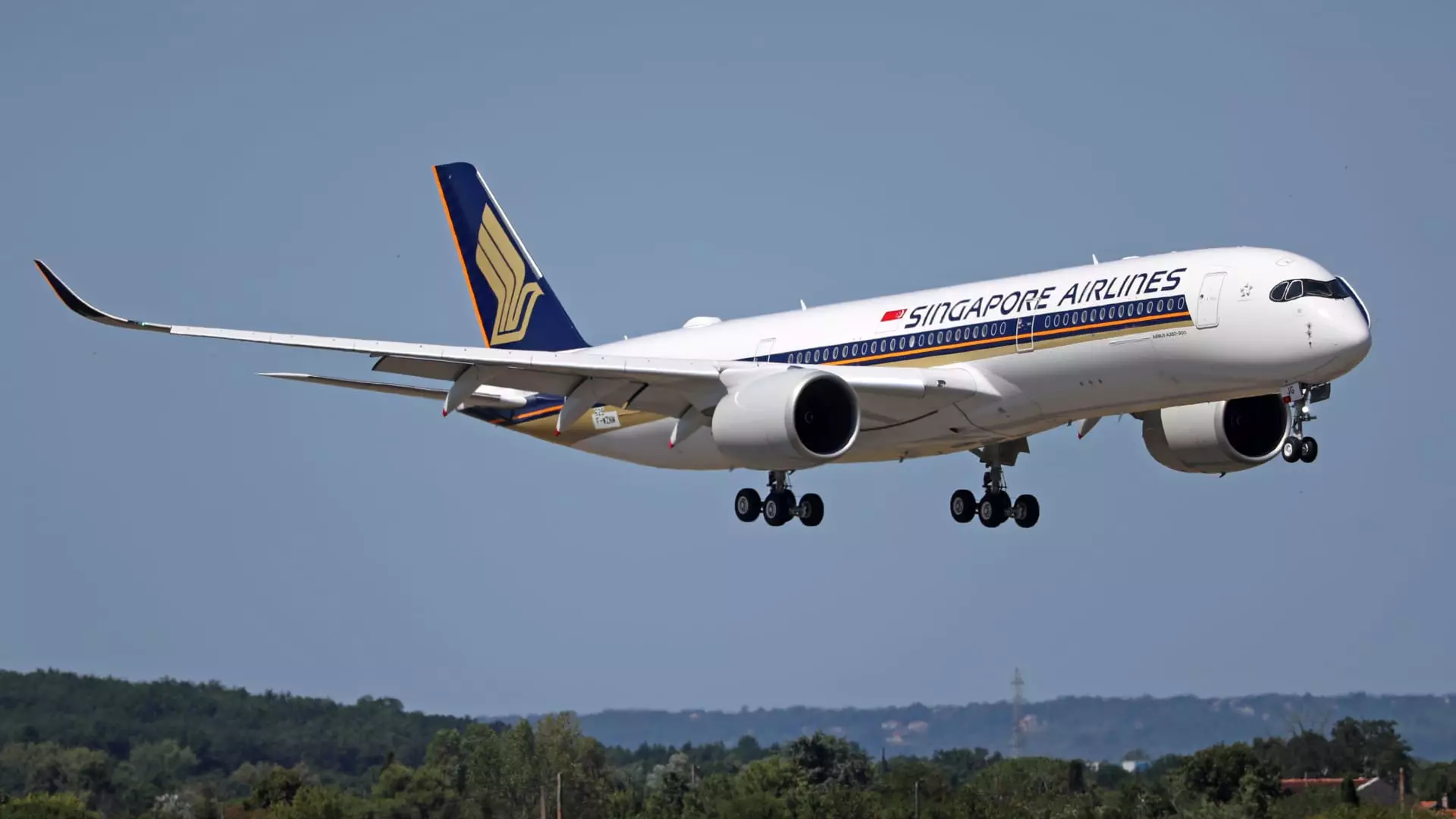In an era where travel preferences are continually evolving, airlines are under increasing pressure to innovate and enhance their offerings, particularly in the premium segment. Singapore Airlines stands out as a significant player in this competitive landscape, not just in maintaining but expanding its luxury services. The airline’s recently announced plans to introduce a new four-seat first class to its Airbus A350 ultra-long-range aircraft exemplifies a strategic move aimed at attracting affluent travelers for long-haul flights.
With transcontinental journeys often exceeding 17 hours, Singapore Airlines recognizes the demand for superior comfort and exclusive experiences. By retrofitting seven Airbus A350-900 URLs, the airline seeks to cater to high-spending clientele who prioritize luxury during their travels. This decision is not merely a cosmetic update; it involves a comprehensive revamp that includes new business-class seats, likely featuring enclosed suites equipped with sliding doors—a trend gaining popularity as airlines aim to offer enhanced privacy.
Singapore Airlines’ CEO, Goh Choon Phong, has hinted that the new configurations will “push the boundaries of comfort, luxury, and modernity,” demonstrating the airline’s commitment to setting new standards in air travel. By investing in upgraded interiors and amenities, Singapore Airlines is positioning itself as a leader in the luxury travel sector.
The retrofitting of cabins specifically designed for long-haul flights is a growing trend among airlines globally. Notably, competitors such as JetBlue Airways have also rolled out premium offerings on their long-range jets, insisting on the importance of privacy and comfort. Industry-wide, there’s a clear shift where airlines are pivoting back towards incorporating or maintaining first-class experiences despite its waning popularity among many U.S. carriers.
While many American airlines have phased out first-class cabins, opting instead for larger business-class sections, Singapore Airlines is betting on a different strategy. This bold move not only sets it apart but also caters to a market segment that seeks exclusivity during long flights, offering an intriguing proposition in a competitive landscape.
Alongside introducing first-class seats, Singapore Airlines’ retrofit plans include significant shifts in its cabin configurations across its long-range Airbus A350 fleet. Current configurations will see a modest increase in business class seats from 67 to 70, while premium economy seats will decrease from 94 to 58. This reflects a targeted strategy to optimize available space for a more luxurious experience, essential for drawing in high-paying passengers.
The S$1.1 billion (approximately US$835 million) investment in these upgrades signifies a long-term commitment to redefining the travel experience. The first phase of these renovations is slated for completion and rollout by mid-2026, allowing the airline an opportunity to align its offerings with evolving traveler preferences.
However, the road to innovation is fraught with challenges, particularly in the wake of the COVID-19 pandemic and resultant supply chain disruptions. The global demand for premium seating has surged following the pandemic, but progress has been stymied by delays and logistical challenges. Airlines, including Singapore Airlines, will need to navigate these issues effectively, ensuring that they can deliver on their promises of luxury and comfort.
Despite obstacles, airlines such as Lufthansa continue to invest in their first-class offerings. The German carrier’s upcoming debut of new first-class suites emphasizes that there remains a viable market for luxury travel segments, highlighting the potential for Singapore Airlines to not just reclaim but expand its market share in high-end travel.
Singapore Airlines’ commitment to enhancing its long-haul offerings with the introduction of a new four-seat first class and upgraded cabin designs underscores the importance of evolving industry standards within premium air travel. As competitors reassess their strategies, Singapore Airlines is betting on the allure of luxury, comfort, and privacy to attract discerning travelers. If successful, this initiative could set a new benchmark for airlines worldwide, illustrating that the future of luxury air travel is indeed vibrant and filled with possibilities.

